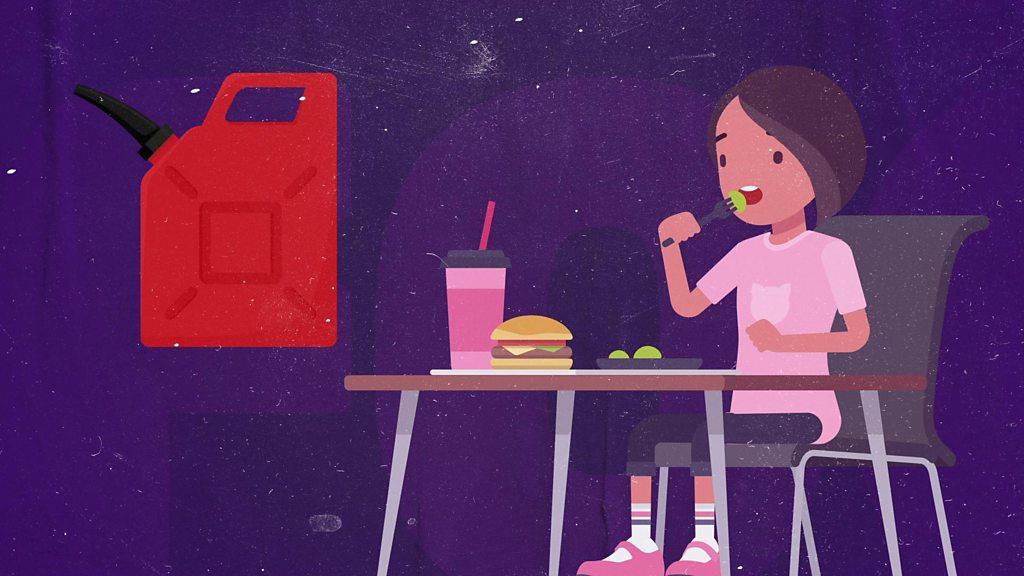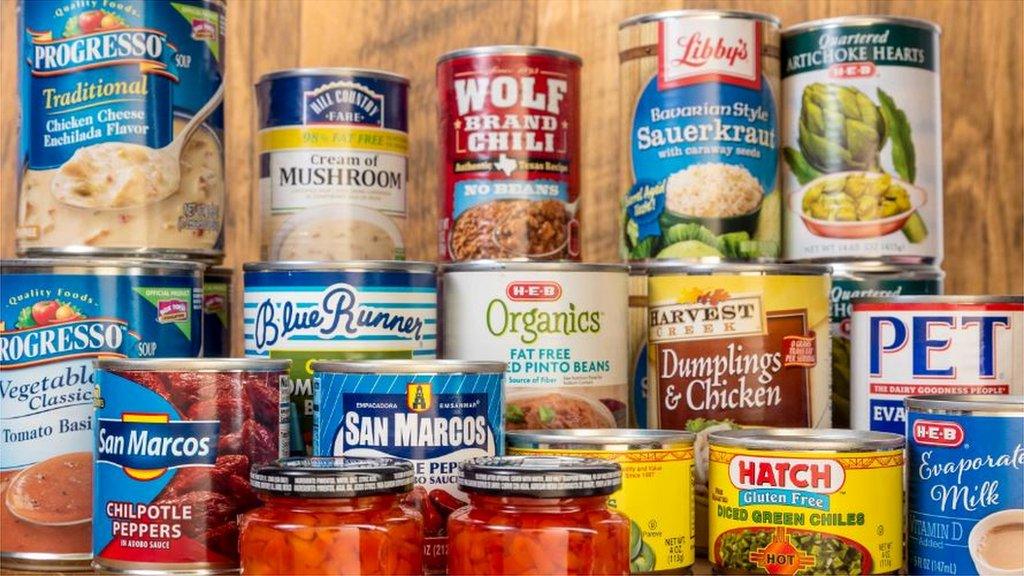UK food banks provided more than two million parcels in past year
- Published
- comments
WATCH: What is a food bank and why do people use them? (Nov 2020)
More than two million food parcels were handed out by food banks across the UK last year.
That's according to the charity, the Trussell Trust, which runs about two-thirds of the country's food banks.
It says the need for emergency food has dramatically increased in the past six months.
The new figures come as the cost of living crisis continues with the price of things like food and electricity going up.
What are food banks?
WATCH: Why are regular meals so important for children? (Nov 2020)
Food banks are a bit like supermarkets, but everything is free. They are for people who struggle to afford to buy enough food to eat.
The products available in food banks consist of basic items that people need to live, most of which are given to the charities by members of the public.
It's not just food available, though. Other essential items like toilet paper and soap are also available.
The 2022 figure of 2.1 million parcels handed out represents a 14% increase compared to the same period in 2019/20 - with more than 830,000 parcels provided to children alone.
How can this be right in a society like ours? And yet food banks in our network tell us this is only set to get worse as their communities are pushed deeper into financial hardship.
While rising bills due to inflation continue to put pressure on families across the country, the Trussell Trust says its network expects the need for emergency food to rise further still over the next few months.
It also warned that parents are sometimes having to skip meals, turn off appliances and go without heating to afford the internet so their children can do their homework.
"No one's income should fall so dangerously low that they cannot afford to stay fed, warm and dry," said Emma Revie, Chief Executive of the Trussell Trust.
A spokesperson for the Department for Work and Pensions said: "We recognise the pressures on the cost of living and we are doing what we can to help, including spending £22 billion across the next financial year to support people with energy bills and cut fuel duty."
- Published26 May 2023

- Published12 November 2020

- Published3 September 2019

